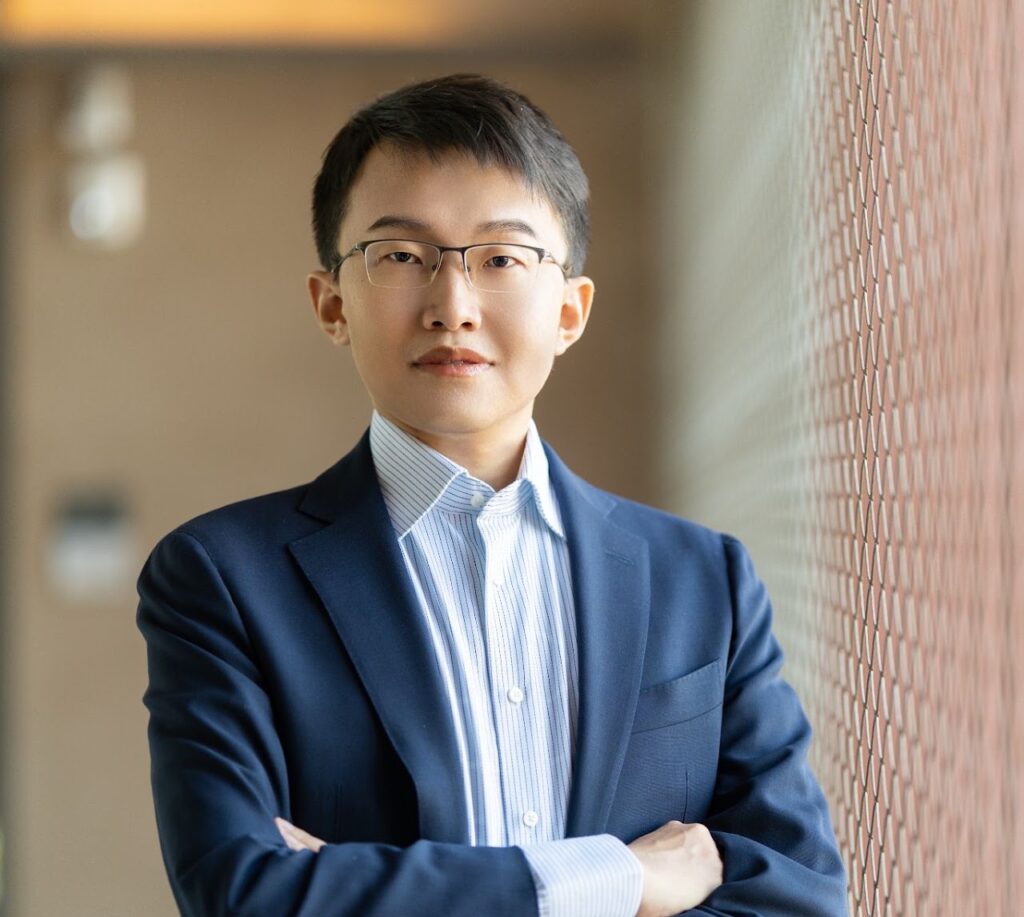Gushu Li has set himself the formidable task of figuring out how to build and program a quantum computer. While other researchers are focused on creating and manipulating the quantum bits, or qubits, that will take advantage of the laws of quantum mechanics to make more powerful computers, Li is concentrating on designing the hardware that the qubits will go into, and the software that will tell them what to do.

Quantum computers promise to solve problems too complex for classical computers, and could help to design new drugs and new materials or uncover the secrets of subatomic physics. But for that to work, there has to be wiring and advanced refrigeration, plus control hardware that sends signals to the qubits and reads out their answers. Li, Assistant Professor in Computer and Information Science in Penn Engineering, is designing the architecture of the machine that will efficiently utilize the qubits.
Li is also thinking about the programming languages people will need in order to use the quantum computer. The first quantum computers contained only a handful of qubits, and those can be programmed using machine assembly language, low-level code that communicates directly with the hardware. But the number of qubits is already in the hundreds and will one day grow to tens of millions. Trying to program those with assembly language would be nearly impossible. “That would be terrible,” notes Li, saying that he’d like to develop something akin to C++. “We need more abstracted programing languages to help facilitate larger-scale quantum computing.”
Li’s interest in science dates back to his high school days in his native China. He didn’t get it from his parents, he says; his father was a police officer and his mother taught literature. When he started his college career at Tsinghua University in 2011, he tried a variety of specialties, from programming with GPUs to neurological imaging. “But after trying a couple of things, I thought I wanted to do something close to physics. And then finally I went to quantum computing,” he says. He earned his Ph.D. in 2022 at the University of California, Santa Barbara, with his thesis entitled “Towards High-Performance, Efficient, and Reliable Quantum Computing System.” Along the way, he was a quantum research assistant at IBM, before starting his career at Penn in January 2023.
Li enjoys spending time with his wife, a research scientist at Facebook’s parent company, Meta. He played badminton a lot before the pandemic, and has earned a pilot’s license, though he has little time for either now that he’s busy setting up his lab and preparing to teach. He’s excited to be working in cutting-edge research that involves manipulating nature at the smallest scale, he says. “Quantum computing is a totally different computing paradigm.”
